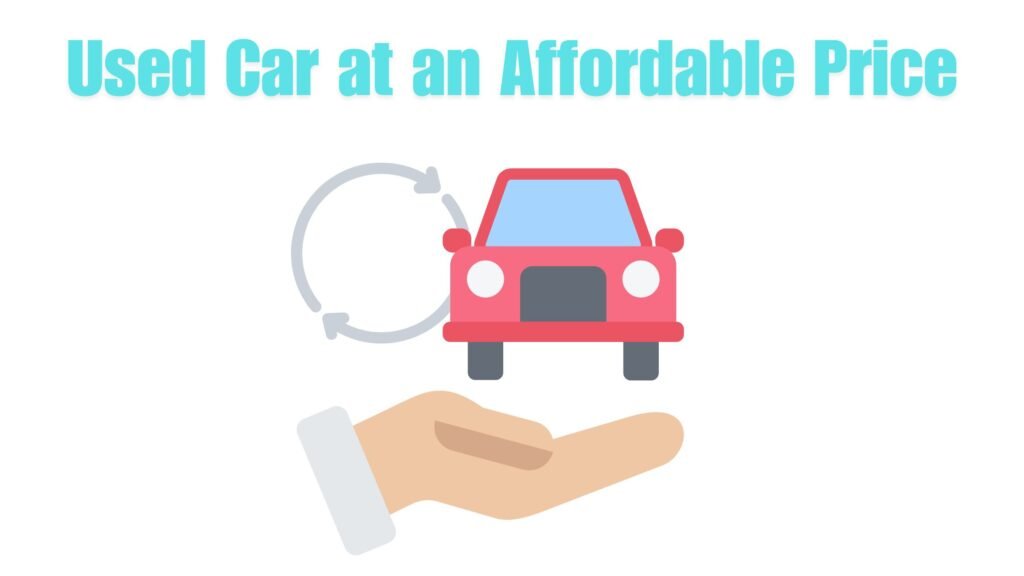Purchasing a used car can be an excellent way to get reliable transportation without the hefty price tag of a new vehicle. However, finding a quality used car at an affordable price requires strategic planning and careful consideration. This article outlines essential steps and tips to help you navigate the process and secure the best deal.
1. Determine Your Budget
Before you start looking for a car, it’s crucial to establish a realistic budget. Consider not only the purchase price but also additional costs such as insurance, registration, taxes, and maintenance. Setting a clear budget helps narrow down your options and prevents you from overspending.
Tips:
- Use online calculators to estimate insurance costs.
- Factor in potential repair and maintenance expenses for older vehicles.
2. Research the Market
Understanding the market value of the cars you are interested in is key to finding an affordable deal. Search on resources like SAT Japan Edmunds, and NADA Guides to research the average prices for specific makes and models based on their age, mileage, and condition.
Tips:
- Look for models known for reliability and low maintenance costs.
- Compare prices from multiple sources, including dealerships, private sellers, and online marketplaces.
3. Consider Certified Pre-Owned Vehicles
Certified Pre-Owned (CPO) vehicles are used cars that have undergone thorough inspections and come with extended warranties. While they might be slightly more expensive than non-certified used cars, they offer added peace of mind and can save you money on repairs in the long run.
Tips:
- Check manufacturer websites for CPO programs and available inventory.
- Compare the cost of CPO cars with non-certified options to determine if the added warranty is worth the price.
4. Shop Trusted Online Platforms
Car prices can fluctuate based on demand. Shopping for a used car on trusted online platforms, such as SAT Japan can yield better deals. Dealers are more likely to offer discounts to meet sales targets during these periods.
Tips:
- Avoid shopping during high-demand times, like tax refund season or summer.
- Look for sales events and promotions, especially during major holidays.
5. Consider Older Models
While newer used cars come with the latest features, older models can be significantly more affordable. Cars that are 3-5 years old often provide the best balance between price, reliability, and modern features. Depreciation slows down after the first few years, making these vehicles a smart financial choice.
Tips:
- Research the reliability of older models to avoid cars with known issues.
- Prioritize cars with a solid maintenance history.
6. Negotiate the Price
Negotiation is a critical part of buying used cars. Always be prepared to negotiate the asking price, whether you’re buying from a dealer or a private seller. Use your research on market values to justify your offer.
Tips:
- Start with a lower offer and be prepared to meet in the middle.
- Highlight any issues or needed repairs to justify a lower price.
7. Get a Pre-Purchase Inspection
Before finalizing the purchase, have a trusted mechanic inspect the car. This can uncover hidden issues that could become costly repairs down the line. Use the inspection report to negotiate a better price or to decide if the car is worth buying.
Tips:
- Choose an independent mechanic rather than one recommended by the seller.
- Factor the cost of the inspection into your overall budget.
8. Explore Financing Options
If you need financing, explore different options to secure the best interest rates. Check offers from banks, credit unions, and online lenders. Having pre-approved financing can give you leverage in negotiations and help you stay within your budget.
Tips:
- Compare loan terms and interest rates from multiple lenders.
- Avoid financing offers with terms longer than five years, as they often come with higher interest rates.
Conclusion
Buying a used car at an affordable price requires diligence, research, and strategic planning. By setting a clear budget, researching market values, considering CPO options, shopping during off-peak times, looking at older models, negotiating effectively, getting a pre-purchase inspection, and exploring financing options, you can find a quality used car that meets your needs without breaking the bank. With these tips, you’ll be well on your way to driving home in a reliable vehicle at a price you can afford.


